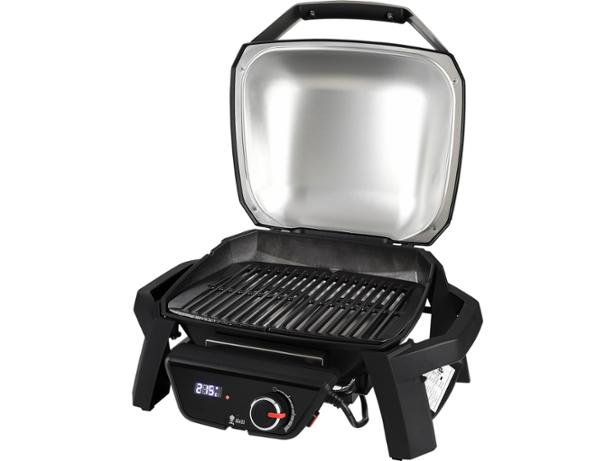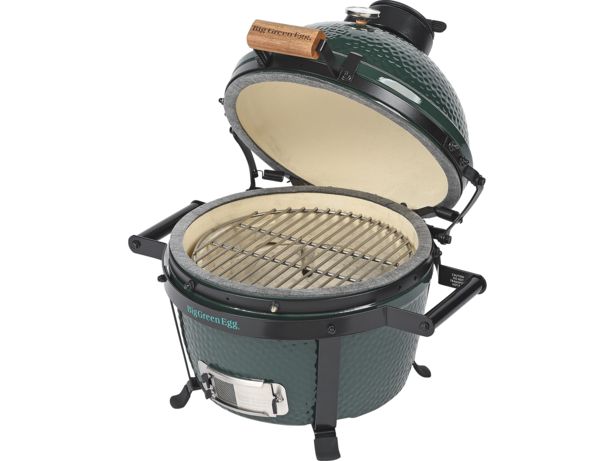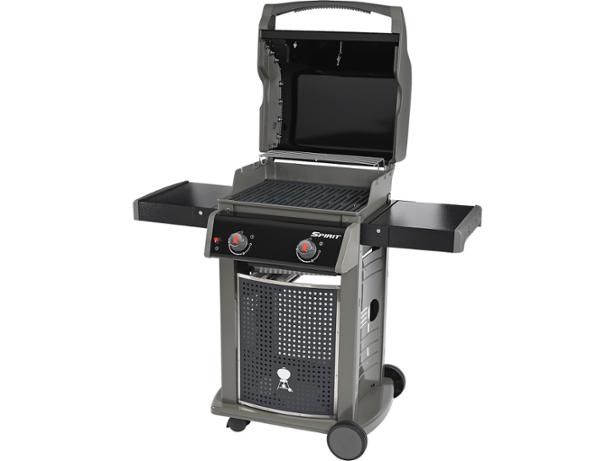How to clean your barbecue

Keeping your BBQ clean won't only help to prevent nasty stomach upsets, it can also keep it in a good working condition for longer.
Many gas BBQs have to be replaced because the gas burners or metal body succumb to rust.
Follow our tips to keep your BBQ running smoothly, or find out which ones have excelled in our tests with our barbecue reviews.
Basic BBQ cleaning kit
- Rubber gloves - to protect your hands
- Brush with nylon bristles and a steel scraper – to remove baked-on food and carbonised grease
- Lint-free cloth to clean, dry and buff surfaces
- Warm soapy water and a non-abrasive sponge pad - to remove stains
- Mild glass cleaner - to clean painted surfaces
- Stainless-steel cleaner - to clean polished metal surfaces
Many manufacturers sell their own BBQ-cleaning products and have videos of their recommended cleaning methods online.
Thinking about investing in a new barbecue? See our barbecue buying guide.
Seven tips for cleaning your BBQ
It is worth giving your BBQ grills a basic clean after each use and a deep clean every three months. You’ll want to clean it without damaging the paint or metal surfaces which can allow rust to start forming.
1. Check your BBQ’s cleaning instructions
Make sure that the cleaning equipment you use won’t damage your grill or invalidate your warranty - for example, some recommend the use of wire-wool scouring pads and others don't.
2. Clean it often
Give your barbecue a basic clean after every use and a deep clean every three months. Preferably as soon as it has cooled down and is safe to touch. It can feel like a bit of a pain, but you'll thank yourself after.
3. Bake off grease deposits
- Leave your gas or charcoal BBQ with the heat and lid on for 15 minutes to bake grease and food deposits into a blackened layer which is easier to remove than liquid grease.
- Leave the BBQ to cool down and remove the coals and ash from a charcoal grill or disconnect the gas bottle from a gas grill.

4. Clean the lid and grills
- Use a grill brush to remove carbonised grease from the inside of the lid and the cooking grills. There's some evidence to suggest that using a metal bristle brush can lead to the bristles breaking off and subsequently being ingested when you next cook, so opt for one with nylon bristles instead.
- Remove the grills and flavouriser bars of gas BBQs, then wash these and the lid with warm soapy water and a non-scratch sponge pad.
Avoid a build-up of carbonised grease on the BBQ lid by wiping over with a damp rag while it's still warm to remove moisture and debris.
Caring for metal and painted surfaces
- Clean stains from painted lids with warm soapy water and polish up with a mild glass cleaner and lint-free cloth.
- Use a mild stainless-steel cleaner on the metal parts of the lid or metal shelves.
- Clean with a side-to-side motion in the direction of the metal grain and then buff until shiny.

5. Cleaning the gas burners
- Clean the gas burners using a brush to remove deposits.
- Use a metal pin or BBQ skewer to unblock individual gas outlets, taking care not to put debris into the burner itself.
- Wash with warm soapy water and dry with a lint-free cloth.
Brush across the width of the burner rather than along the length of it to avoid pushing debris from one hole to another.
6. Clean the cavity of the BBQ
- Remove big deposits of food particles or grease and then clean the inside with warm, soapy water and a sponge.
- Rinse and dry with a lint-free cloth.
- Use a flat metal tool, such as a putty knife or a paint scraper, to remove large grease deposits.
- Empty and clean the drip tray and replace any drip-tray liners ready for the next time you use your BBQ.
7. Protect your barbecue
- Apply a thin coating of vegetable oil to your grills and reassemble your barbecue.
Is your barbecue beyond cleaning? We round-up the best gas and charcoal barbecues.

Caring for and storing your barbecue in winter
Many gas BBQs have to be replaced because the gas burners or metal body succumb to rust over the winter months. Follow our tips to stop the rust setting in and to keep your BBQ in working order after the winter.
1. Protect your barbecue from the elements
Rust usually starts because the metal surfaces of a BBQ get damaged and then damp. So the the ideal place to store your BBQ is in a shed or garage, away from rain, frost and freezing temperatures.
Otherwise it's wise to invest in a BBQ cover, which will cost from £15 to £60. Look for a cover that fits well and is easy to put on and take off. Covers have a habit of blowing off in strong winds, so look for one that has strong ties to attach it to the frame or use a rope to tie it on.
2. How to stop cooking grates from rusting
Damaging the surface or coating on your cooking grills/grids/grates can let rust get a foothold. You need to treat the different types of grill materials in different ways to stop this happening.
- Cast-iron grills
These rust easily unless they're kept seasoned. After cleaning the grill with warm soapy water and removing any rust with steel wool, dry thoroughly and then wipe over with a highly saturated solid fat such as lard or palm oil. Put them back in the BBQ with the burners on medium heat for a while, then leave them to cool before storing.
- Stainless-steel grills
After cleaning with a brush and warm soapy water dry the grills, then apply a light layer of vegetable oil before storing them away.
- Chrome-coated wire grills
Avoid cleaning these with wire wool which can damage the surface - just wash them with hot, soapy water. Use a chrome cleaner if necessary. To prevent rusting, wipe them with cooking oil after rinsing and drying.
3. Final BBQ checks
Before you put your gas BBQ away, take a bit of time to check the following:
- Make sure it's clean and dry.
- Check the hose that connects the gas bottle to the BBQ and remove fat or oil deposits. Look for kinks, splits and signs that the rubber is perishing; if it is order a replacement hose before next spring. Store the hose away from frost and direct sunlight.
See our shed and outdoor storage buying guides.
Storing and transporting your barbecue
It’s easy to just daydream of your grill shining in all its glory out on the patio, but before you buy one you’ll need to consider how you plan to move and store it away.
Large barbecues are especially heavy and difficult to move, and some of those we’ve tested have weighed as much as 67kg. If you’re happy to buy a cover for your barbecue and leave it out all year, it’s not so much of an issue, but if you need to store it away in the shed after each use, here are some things to bear in mind:
- How many pairs of hands you need to lift the barbecue, as most barbecues will require at least two people to lift them safely.
- The terrain you’ll need to travel over while transporting it (uneven ground, steps, slopes, etc).
- Space you’ll need to store it away so you can protect it from the elements, especially during the winter.
Some barbecues have collapsible parts and carry handles that help with transportation. Our barbecue reviews take these elements into account and rate how manoeuvrable each barbecue is over a specially designed obstacle course.
Planning to take your barbecue camping? See our best tents.
How to store your barbecue cooking gas
A barbecue gas canister of any kind should never be stored in your house. Make sure the gas tap is switched off on the canister before you try to detach it from your gas barbecue.
Do:
- Store gas bottles in an upright position in a well-ventilated place.
- Ensure gas bottles are stored away from heat and ignition sources.
- Make sure gas bottles are stored outdoors, away from building entry/exit points, drains, frost and direct sunlight.
- Keep out of reach of children.
Don't:
- Store gas bottles below ground level.
- Keep gas bottles near any corrosive, toxic or oxidant material.
Ready to pick out your grill? Head to our guide on the best barbecue brands, or check out the full list of barbecue reviews to see all the models that have gone through our tests.


